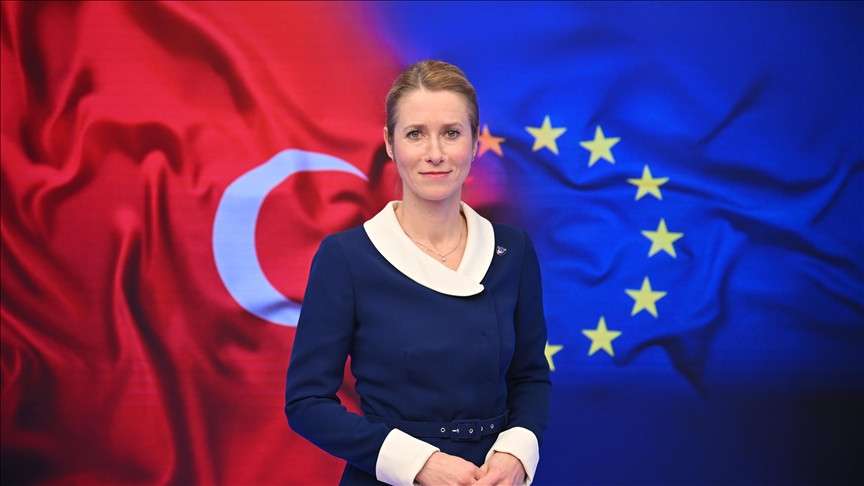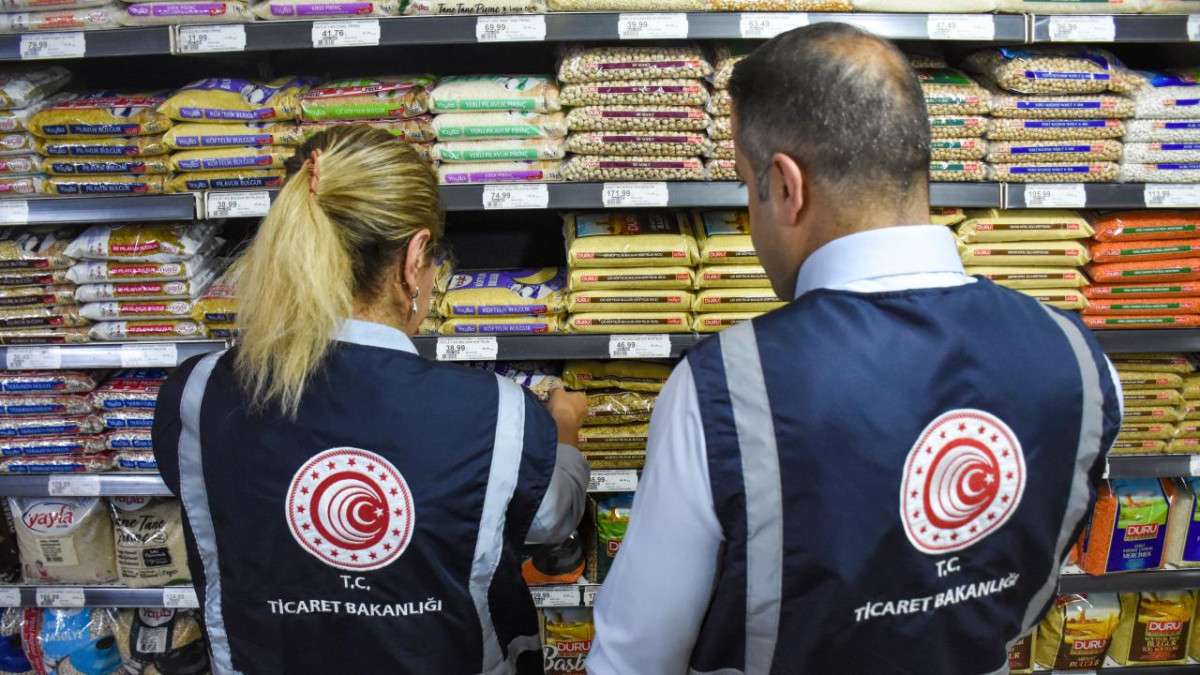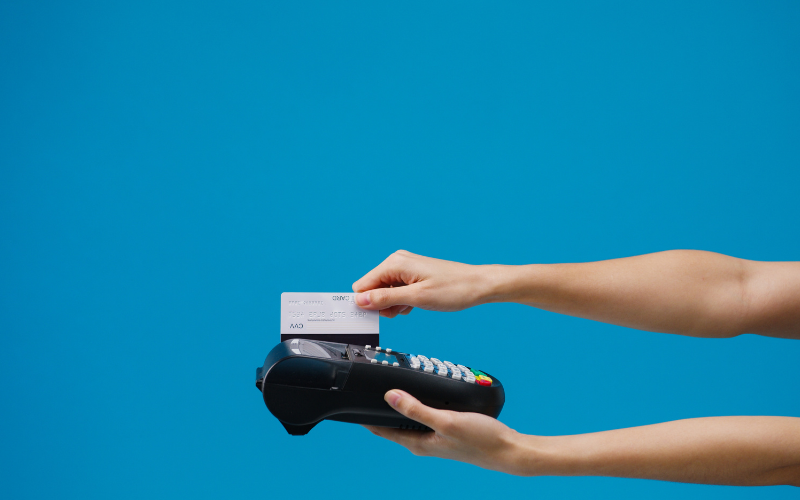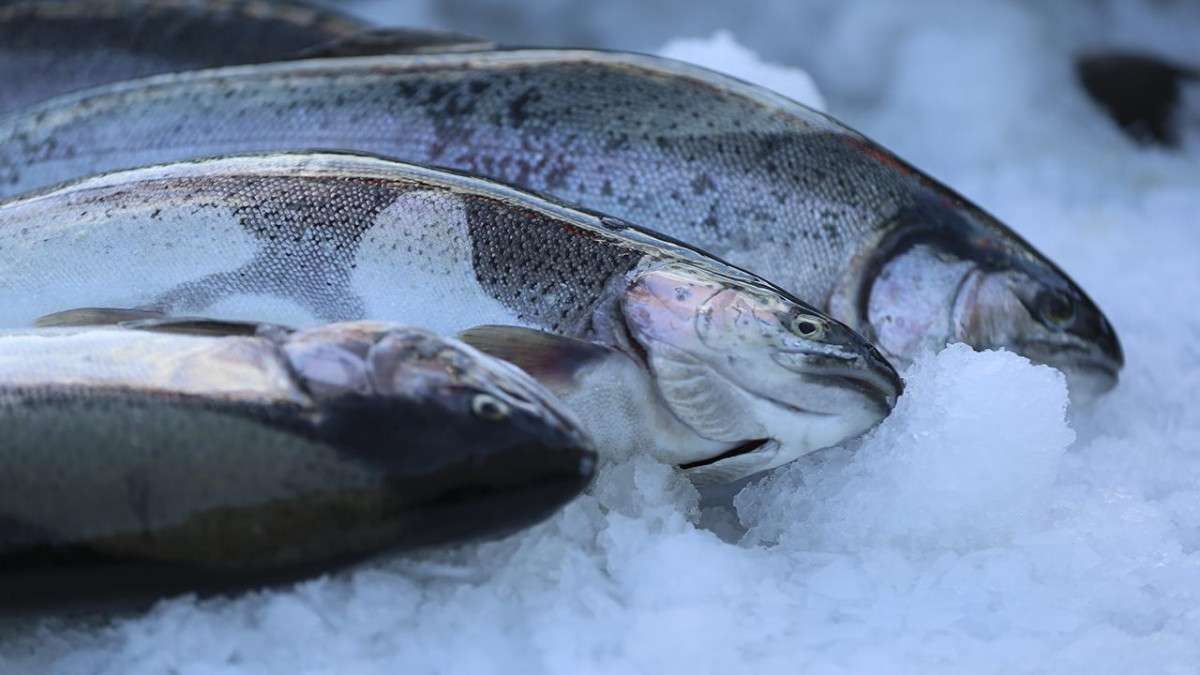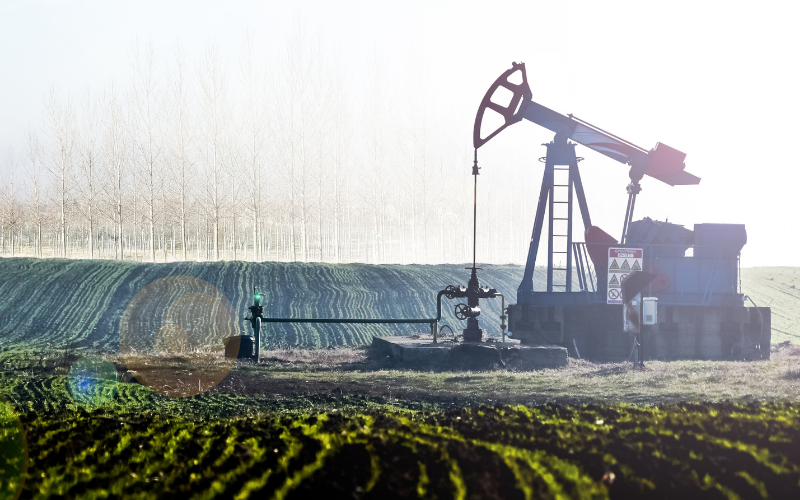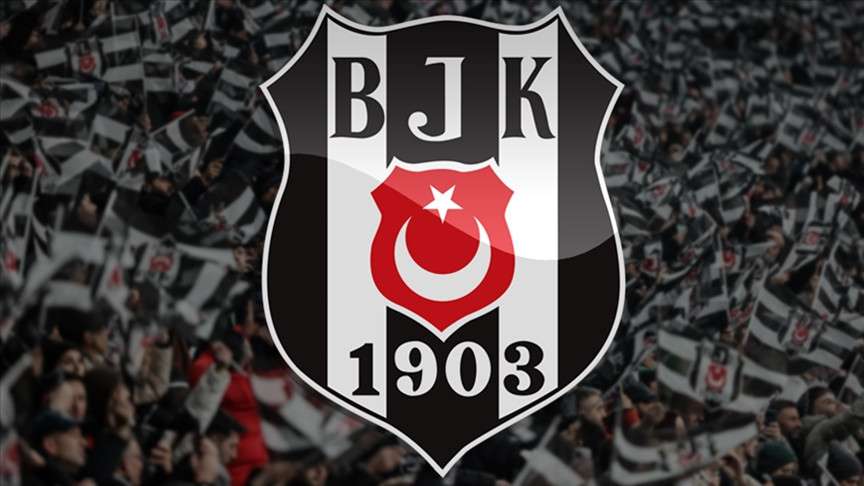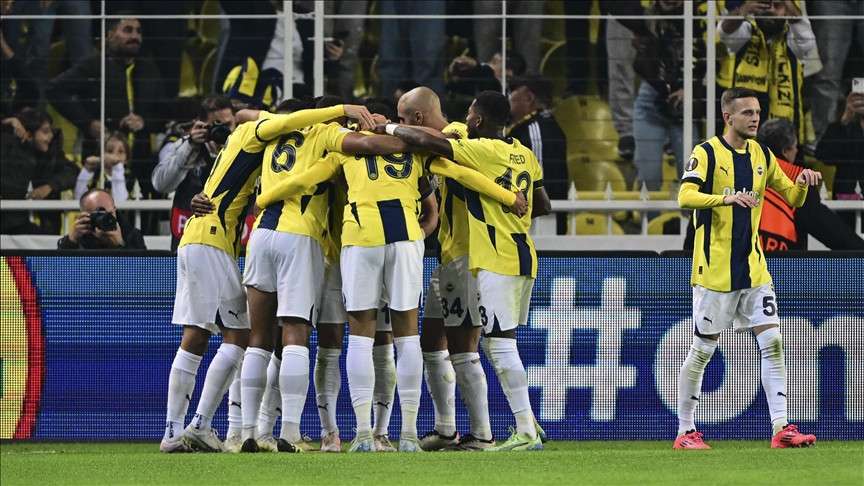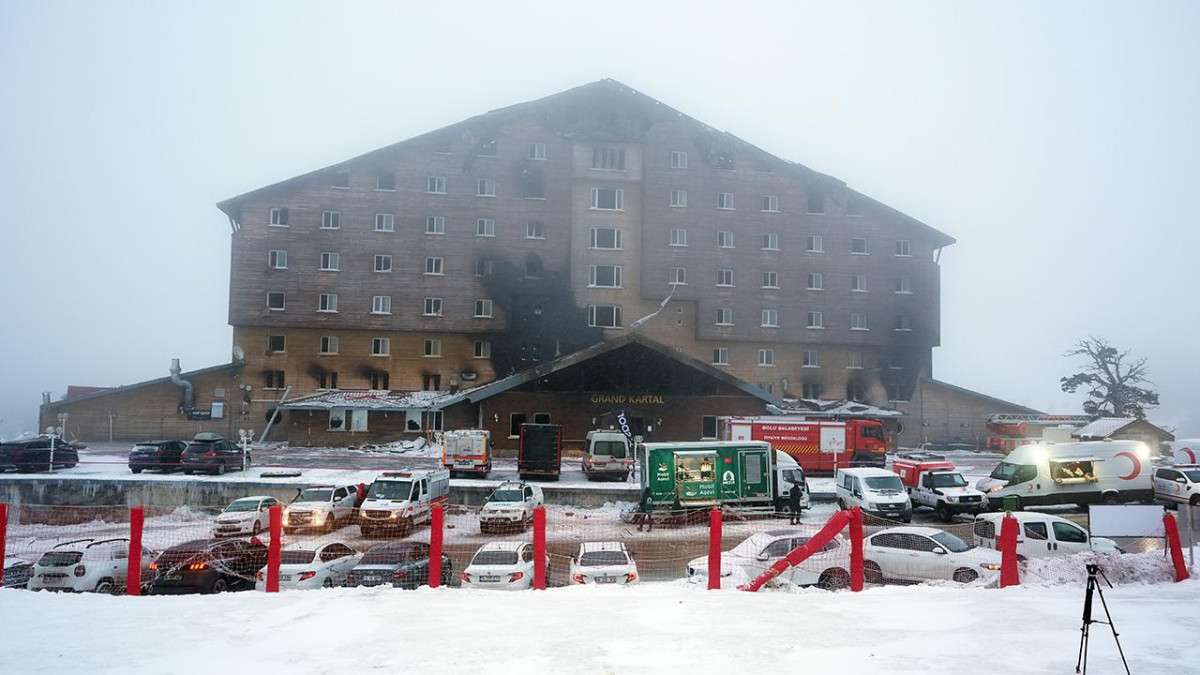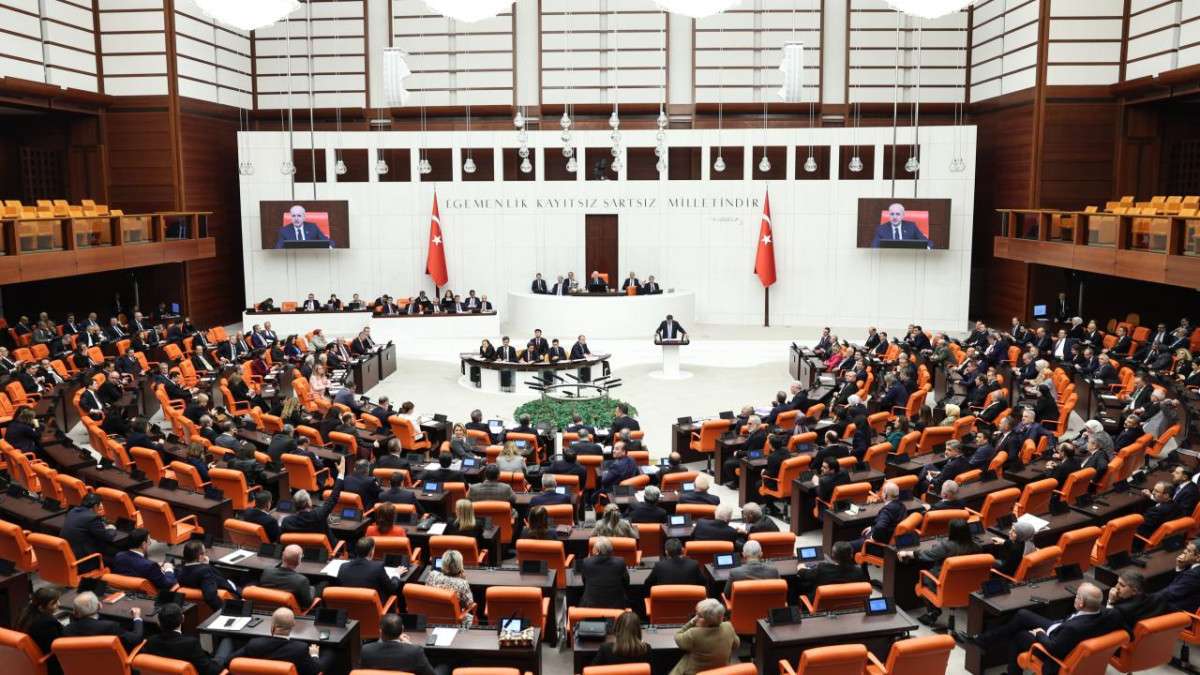Türkiye 'partner of strategic importance,' candidate for EU membership: Foreign policy chief
Türkiye 'partner of strategic importance,' candidate for EU membership: Foreign policy chief
Friday's visit to Ankara set to show EU and Türkiye have many issues to discuss and cooperate on, says Kaja Kallas
EU foreign policy chief Kaja Kallas Kallas underlined that Türkiye, which she sees as an important actor in cooperation, especially on regional issues, is a candidate for EU membership and a strategic partner with common interests and said: “It’s high time to visit Türkiye and I will do it really in the first part of my mandate. We have many issues. In addition to regional security, we can discuss cooperation in different areas such as energy, for example.”
Kallas spoke to Anadolu on her visit to Türkiye this Friday, where she will discuss regional developments and Turkish- EU relations. She also made comments about the EU's foreign policy and defense agenda, relations with Syria’s new administration, efforts to make the ceasefire in Gaza permanent, and the main topics to be on the table with the new US administration.
'It's high time to visit Türkiye'
ANADOLU: You’re paying a visit to Türkiye on Friday. Before your departure, could you please speak on the current state and future of Türkiye- EU relations? What's your message?
KALLAS: Türkiye is our partner of strategic importance. So it's clear that we want to have comprehensive partnerships with Türkiye. The last visit was in 2022, so it's high time to visit Türkiye. I will do it really in the first part of my mandate. We have many issues. So we can discuss about regional security, about also different cooperation points like energy cooperation, for example, that we can have. So definitely, there is room for more cooperation.
Q: Do you see Türkiye as just an actor when cooperating on regional issues, or do you consider Türkiye's status as an EU candidate country? My question is, can we interpret your visit as a step towards reactivation of the Türkiye- EU High Level Political Dialogue and Türkiye- EU Association Council?
KALLAS: Well, we are both interested in a stable and secure environment in the Eastern Mediterranean. That is our mutual interest on Syria. We also share the interest that this country develops in the right direction, and there's the territorial integrity and sovereignty of the country. On Gaza, the ceasefire continues, and the peace is important for the people. So these are the things that we can work with. At the same time, of course, we have the candidate country status. Türkiye remains in candidate country status. But this process is at a standstill, and there are remaining issues in line with the 27 member states that we have. Of course, the issue about Cyprus, human rights, the rule of law, fundamental rights, are the issues that we need to discuss. So these are our points of contact.
Q: Do you think a European defense system separate from NATO should be established or is there a risk of duplicating what NATO already does?
KALLAS: We shouldn't duplicate what NATO already does. We have 27 armies in the European Union, and they should all contribute to have this collective defense that we cooperate with each other. Every country has one set of defense planners and one defense budget. So it's not that we need a European army, but we need these 27 members to work together very well. When it comes to NATO and the European Union, there are 23 members we have in common with NATO, so that makes us natural partners as well. But of course, there are more allies in NATO that we need to work with, and Türkiye is one of them.
EU 'willing to discuss the relief of sanctions' on Syria
Q: From the first day, you have been making cautious statements of support for the new administration in Syria. Now what's your observation? Is the country heading in the right direction?
KALLAS: It's very early still to tell. I mean, it is clear that they are saying all the right things, but are they also making the right steps and developments whether they go to the right direction? That's why I think it's also very important that the international actors, as well as regional actors like the Arab countries, but also Türkiye that we share a common understanding. We want to see the inclusiveness of the government in Syria. We want to see no radicalization. I think this is in the interest of everybody that it's a stable country. So we are cautiously optimistic and willing to discuss the relief of sanctions, but do it by, you know, a step-by-step approach. I mean, if they do the right things, we are willing to do steps on our side. If they do, you know, steps that go to the wrong direction, then we are also willing to take a step back and put some sanctions back.
Q: The way to normalization lies in the country’s reconstruction. So will the EU lift its sectoral sanctions on Syria's new administration?
KALLAS: We will discuss this on Monday, on the 27th of January. We have the Foreign Affairs Council, so that is one of the topics that we will discuss. But we are willing to do the steps on our side so that they are able to build up their country. Of course, you know, access to banking services, such things that they really need in the first phase. But to be very concrete, also next steps should be in relation to what they do. Everybody wants to see the steps going to the right direction.
'We need to do everything' to prevent return of Daesh (ISIS)
Q: Would the EU encourage its member states to bring back ISIS members held by PKK/YPG-led SDF forces in Syria to bring these terrorists to justice?
KALLAS: It is clear that it's in the interest of everybody that there is no return of ISIS and the terrorism is diminished. Because everybody, Türkiye as well as European Union, have risks in relation to terrorist organizations flourishing in our neighborhood. So it is clear that we need to do everything that this doesn't return. When it comes to taking back their citizens, then, of course, it's a decision of individual member states who have such prisoners and fighters in the prisons. So it is up to member states to decide.
'Important' to keep 2-state solution 'in mind'
Q: The EU welcomed the ceasefire in Gaza and increased its humanitarian aid. But does the EU prefer to play only a humanitarian role in Gaza? And you announced that you will convene the EU-Israel Association Council soon. What will be your message to your Israeli counterparts in this meeting?
KALLAS: We will have EU-Israel Association Council, and then we will also have a high-level political dialogue with the Palestinian Authority. I think it's very important that we keep this two-state solution in mind. And in order to have two states, it has to be a balanced approach. When it comes to the Association Council, then the item on the agenda is the regional situation, but also very concretely, the situation in Gaza. Right now, there is a ceasefire, but it's in the interest of the European Union that there would be also more sustainable peace. And in order to have that, that means that the security concerns of Israel need to be taken into account, but also that the Palestinians have their right to exist.
'Türkiye has a very important role in pressuring Russia to have peace'
Q: On Ukraine, US President Donald Trump has been clear that he wants to stop the war. Do you think Türkiye can play a role in mediating the war in Ukraine?
KALLAS: What we all need to do is put the huge pressure on Russia, because right now, Russia does not want peace. If Russia stops bombing Ukraine, the people, the civilian infrastructure there and withdraws its troops, then this war will end. I also see that Türkiye has a very important role in pressuring Russia to have peace on the ground.
Q: The second Trump term has officially began. Can we say that there was an anxious wait in Brussels, and what will be the first issue you discuss with the new US administration?
KALLAS: Of course, the elections are always a very turbulent time and of course, if the administration is changing, then it brings also changes to policy. So we are willing and looking forward to cooperating also with the new administration. The main issues that we need to discuss and cooperate on, of course, are security and defense, but also economic issues. The US and European Union are big trading partners. Our economies are very much intertwined. And of course, on foreign policy issues, if the US is worried about China, then they should first be worried about Russia. So supporting Ukraine, so that Ukraine can win this war, I think it's also very important.
Q: Do you have anything to say regarding your Friday visit to Türkiye? Maybe a last message?
KALLAS: I look forward to the meetings in Ankara. So this is going to show that the European Union and Türkiye are partners, and we have many issues to discuss and cooperate on. Thank you so much.
Yorumunuz başarıyla alındı, inceleme ardından en kısa sürede yayına alınacaktır.


